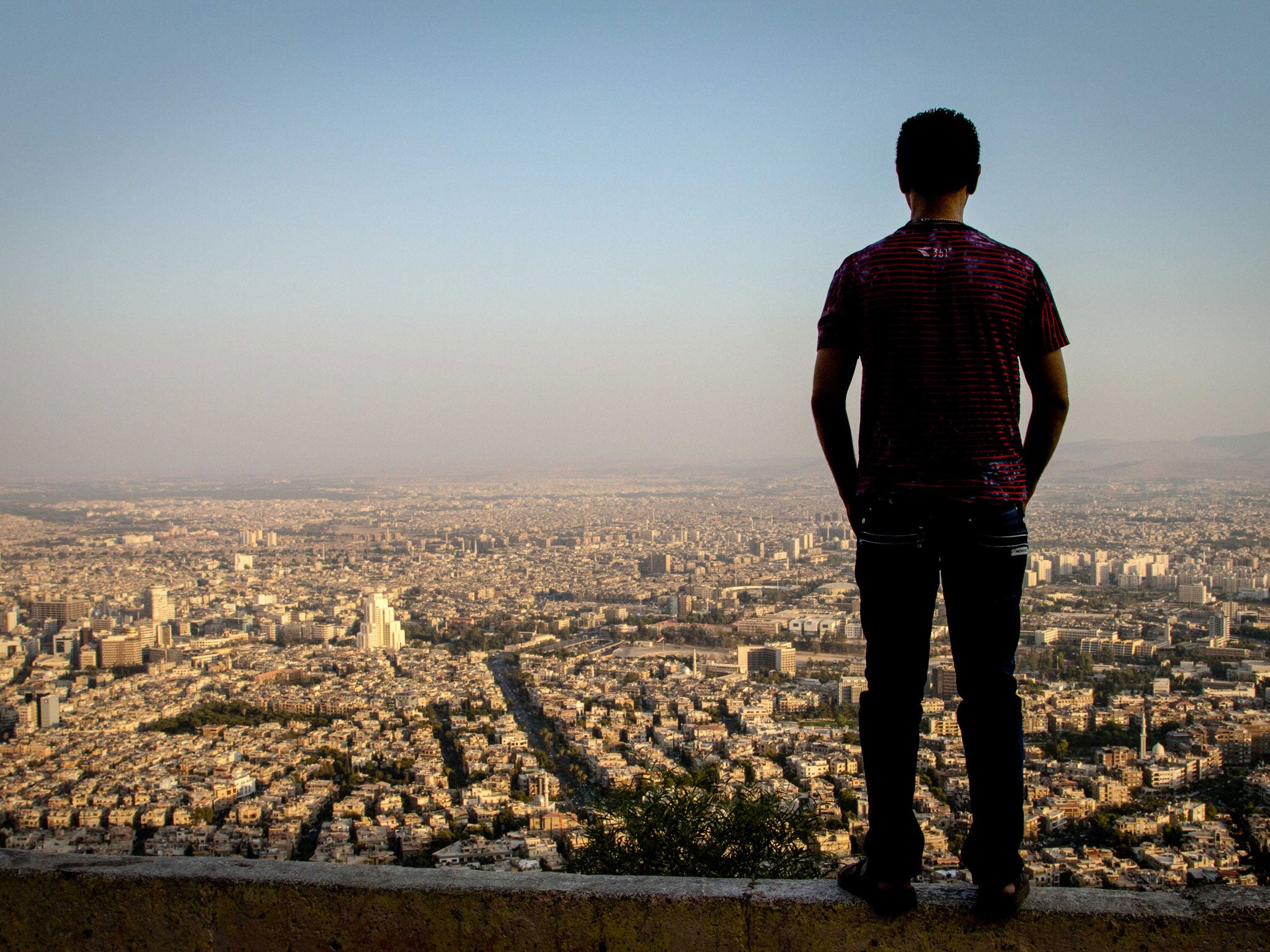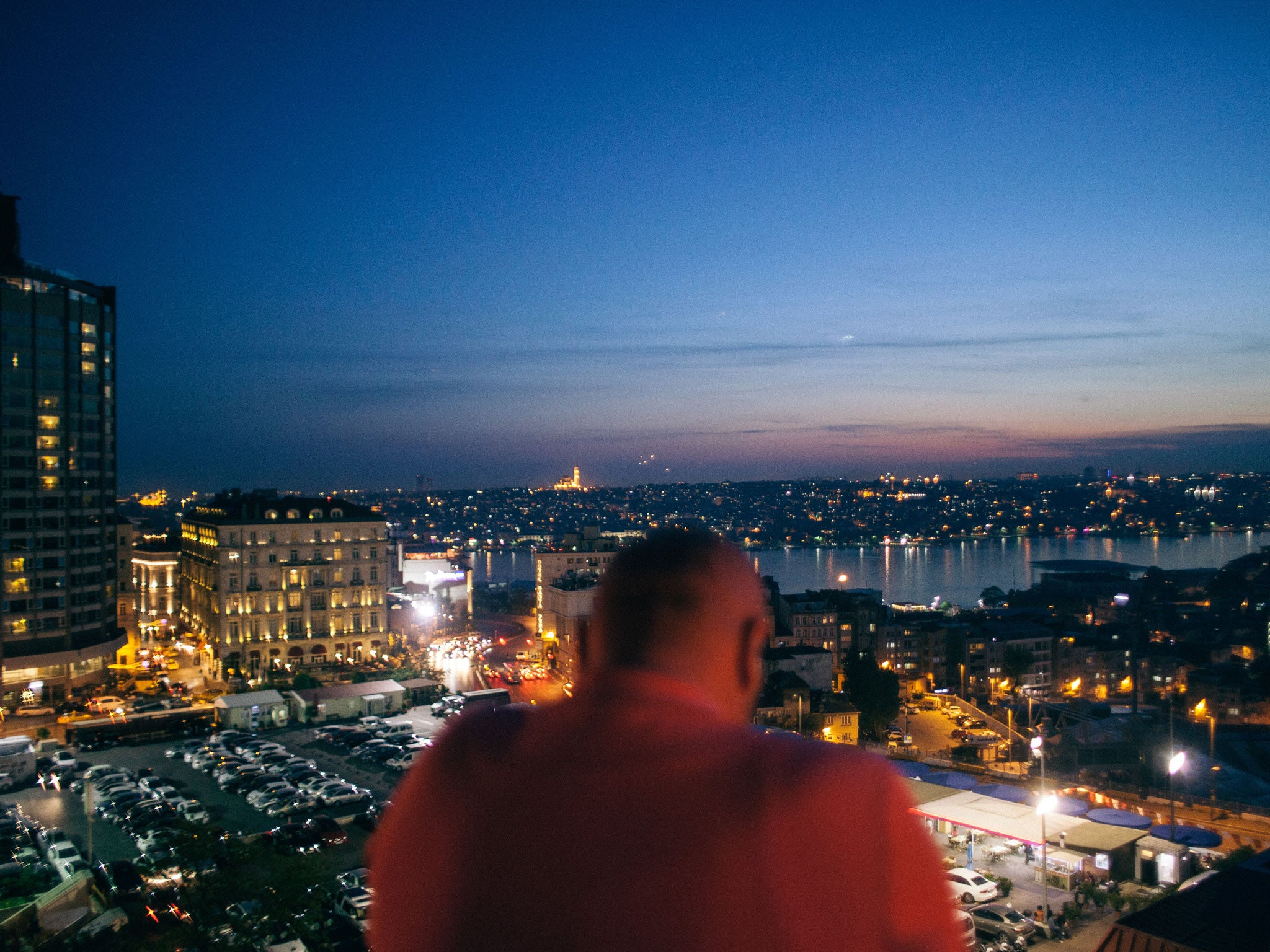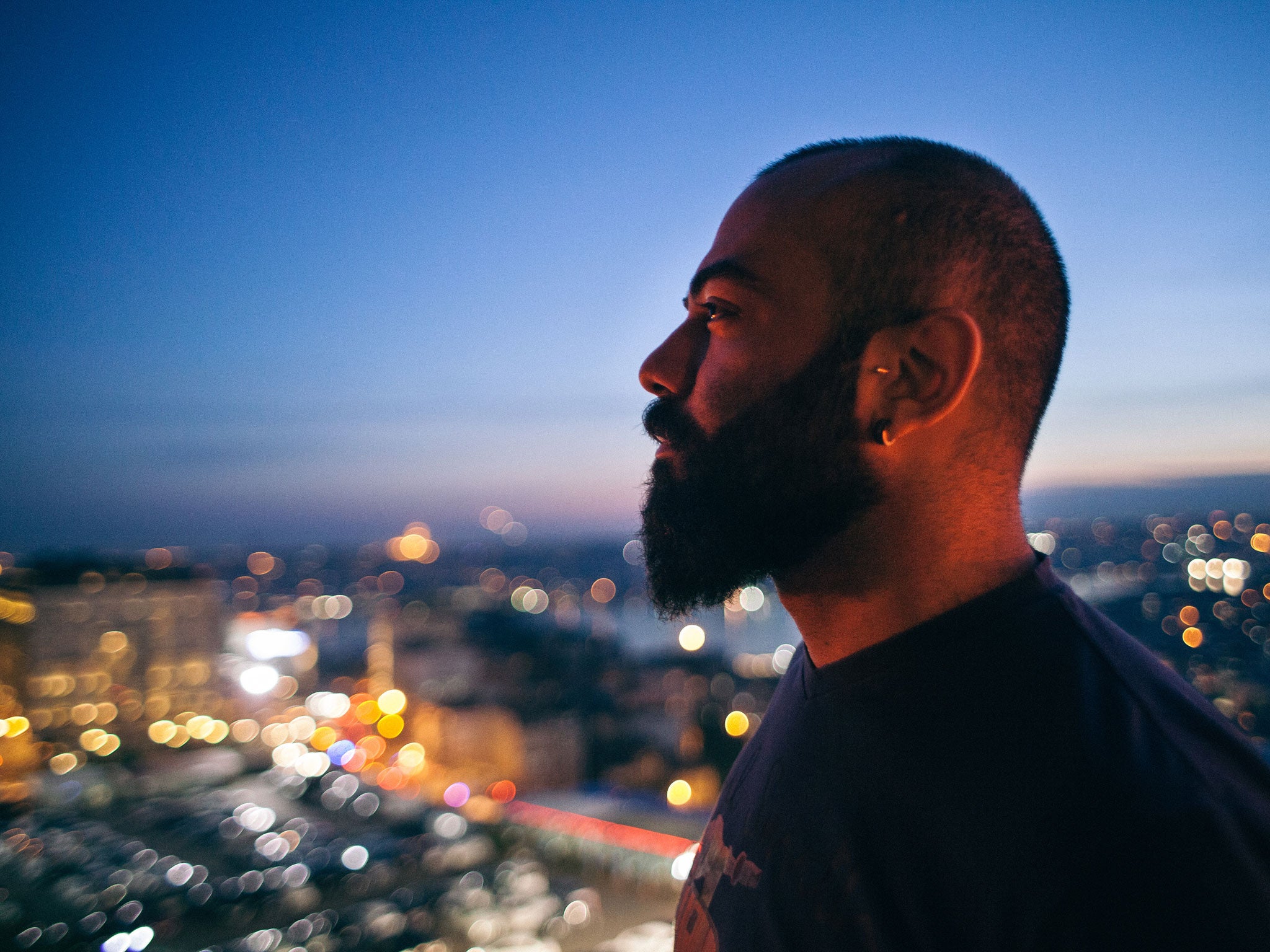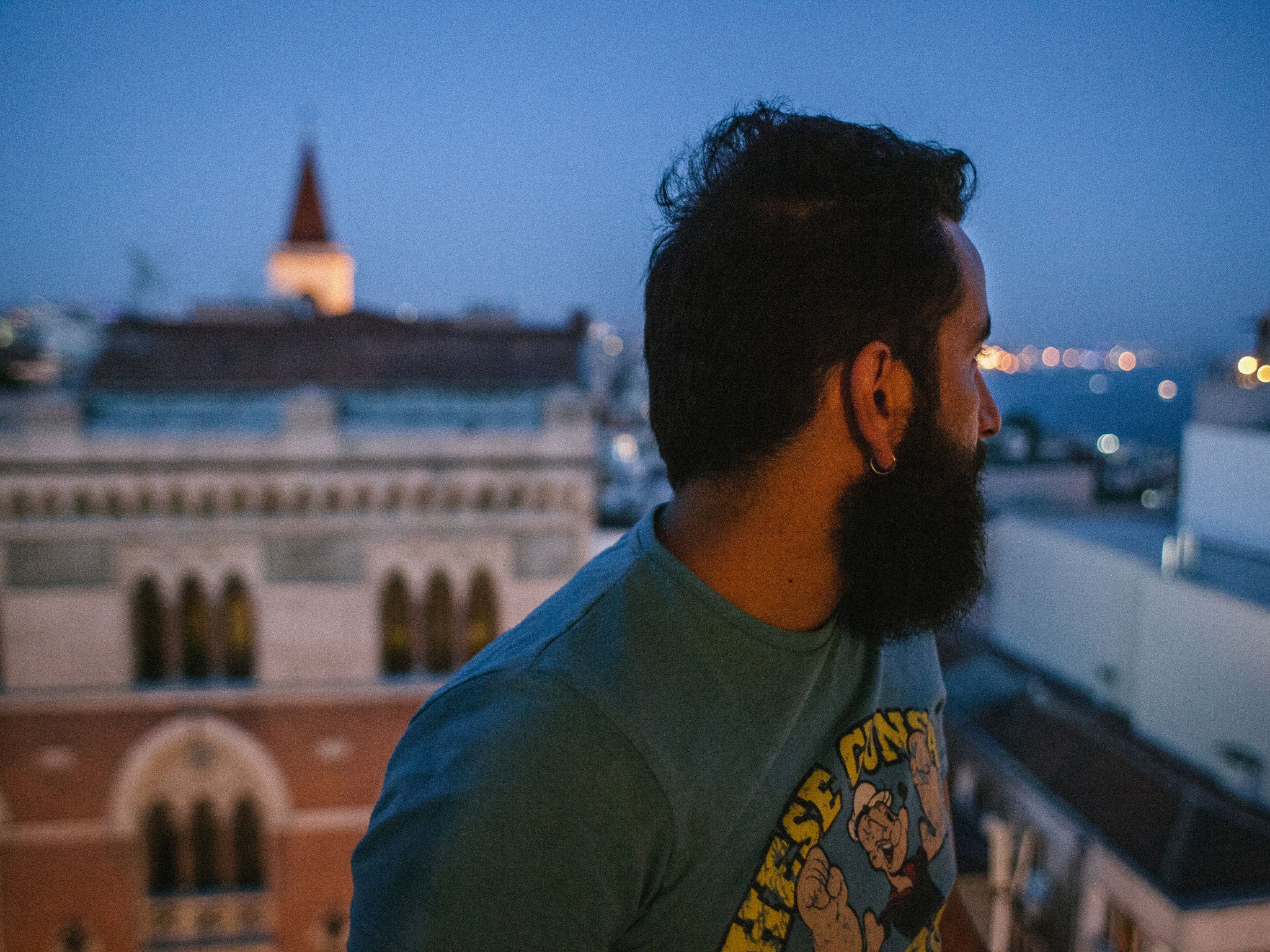Syrian and Iraqi members of LGBT community have found a haven - of sorts - in Istanbul
Bissam recently fled Damascus, under threat from Isis death squads. His 'crime'? Being gay. So he made his way to a city where fellow Arab members of the LGBT community have been gathering to seek a new life – and fellowship – in exile…

Your support helps us to tell the story
From reproductive rights to climate change to Big Tech, The Independent is on the ground when the story is developing. Whether it's investigating the financials of Elon Musk's pro-Trump PAC or producing our latest documentary, 'The A Word', which shines a light on the American women fighting for reproductive rights, we know how important it is to parse out the facts from the messaging.
At such a critical moment in US history, we need reporters on the ground. Your donation allows us to keep sending journalists to speak to both sides of the story.
The Independent is trusted by Americans across the entire political spectrum. And unlike many other quality news outlets, we choose not to lock Americans out of our reporting and analysis with paywalls. We believe quality journalism should be available to everyone, paid for by those who can afford it.
Your support makes all the difference.Sweat drips down brows and whirling lights illuminate the faces of the energised crowd as Saturday night slips into Sunday morning in Tek Yön, Istanbul's best-known gay club.
You may think of Istanbul as a place of postcard-pretty mosques, winding markets and exotic spices. Or you may recently have heard it mentioned in the news, as a gateway for foreign jihadists headed to Syria and Iraq. Among all of these realities sits Tek Yön, where you'll find gay exiles from every sect and ethnicity in the Middle East. Elsewhere, they might be enemies; here, they dance together. "Istanbul is a bubble of freedom and gay rights in the region, and Tek Yön is a good meeting point for gay Syrians and gay Arabs in general," explains Subhi, from Syria.
While those waving flags of black head south from the city, another community has trickled in from the opposite direction, carrying the rainbow banner: LGBT refugees from across this volatile and conservative region have found in Istanbul a sanctuary of sorts.
A native of Maarrat al-Nu'man in north-west Syria, Subhi witnessed the rise of extremism and violent homophobia in the early stages of the insurgency. "Back in 2012, there was an announcement from the mosque speakers about cleansing the city of gays," he recalls.
The group that made the announcement was Jabhat al-Nusra, al-Qa'ida's Syrian franchise, which later allied with Isis. They arrested at least 22 men in Subhi's town, condemning them to weeks in detention and hefty fines for committing "gay" acts. Fearing the same fate, Subhi fled to Turkey. "This event was the first I knew about in Syria, in which opposition forces publicly targeted gay men," he says now.
Yet threats against sexual minorities were present in Syria long before the uprising began in 2011. Police were known to raid gay house parties and cruising areas, and individuals even faced violence from families and friends if they were outed. As Subhi says, "The government has been targeting LGBT people for years."

After the civil uprising, the Syrian regime was swift to take out its ire on the LGBT community. But Isis militants may well be the most boastful, and brutal, of the lot, routinely circulating images of men they have labelled as gay being hurled to their deaths from rooftops, or being stoned to death in fields.
Isis has also violently persecuted sexual minorities in Iraq. Turkey, which shares a border with both conflict zones, has absorbed millions of refugees, among them sexual minorities who have become outcasts from their own communities. In a Middle East that is becoming increasingly divided along political, religious, and ethnic lines, eclectic Istanbul offers a rare chance to cut across these invisible borders – the type of opportunity the recently formed group LGBT Arabie has jumped on.
"There are hundreds of us here," says the group's co-founder, Nader, a 25-year-old gay Syrian from Homs. Sporting an earring, Nader wears his beard long, breaking the stereotypes of hardline religion associated with it. His rallying cry is a glimpse of optimism for both a community and a region living in turmoil and fear. Since March, on Sunday afternoons he has hosted "Tea and Talk", an Arabic-language meeting for LGBT people on Istanbul's Asian side.
In a room furnished only with fold-out chairs, and walls decorated by photographs, newspaper clippings and banners from the LGBT rights struggle in Turkey, tea is poured and conversation begins, as a small rainbow flag flutters from the window. The first meeting welcomed nine intrigued but slightly nervous guests, and has grown ever since. Participants from across the Arab world, from Morocco via Libya to the Levant countries, discuss issues of refugee rights and asylum, Islam and homosexuality, and coming out. Most LGBT activities and connections in the past were largely online – yet here there is a tangible sense of grass-roots activism.

It is an activism that Mahmoud Hassino has tried to inculcate since the early years of the Syrian uprising. After fleeing Damascus for Turkey, the journalist created Syria's first and only LGBT magazine from exile, Mawaleh ("Nuts" in Arabic). "Mawaleh had been an idea in my mind for years, but when the situation in Syria started to escalate, I realised that LGBT Syrians would face the same threats as LGBT Iraqis faced and still are facing," says Hassino.
He established a blog in 2006, which acted as a visitors' guide to gay Syria, written under a pseudonym. As sectarianism rose, Mawaleh was the first to push for a more united front among Syrian LGBTs, whatever their ethnicity.
Despite finding something of an oasis in Istanbul, the situation in Turkey is still far from perfect.Being LGBT and Syrian here means facing not only homophobia and transphobia from within the Syrian diaspora, but also rising animosity from Turks. Minutes before it was due to begin this year, Istanbul Pride was cancelled under orders from the city's governor, who cited the Muslim holy month of Ramadan as the reason. Subsequently, the amassing crowds of thousands were faced with riot police, who fired tear gas, plastic pellets and water at them.
It is understandable, given this atmosphere, if not everyone who arrives in Istanbul plans on staying. Hassino himself recently received political asylum in Germany; Subhi has been formally resettled to the United States.
LGBT people departing for ever from the region may seem drastic – and it doesn't tackle the persistent problem of persecution. But for many, it's the only way they believe they can have a truly fresh start and think about the future in terms of years rather than mere months.
Resettlement is seen as a last resort by the UN Refugee Agency the UNHCR, which makes it an option only if there is no hope of the person returning to their homeland, or continuing to live in their host country. Mary, a transgender woman from Aleppo, left Syria six months before the uprising, in March 2011. She moved to Turkey so she could apply for resettlement in a third country. Three years on, she was finally resettled to Canada. Before departing, her thoughts on returning to Syria one day were like those of many other LGBTs being evacuated: "No reason in this life will make me think to go back to Syria, whether there is war or not. My problem is not just the war."
Bissam, a gay Iraqi from Diyala province, spent five years in Syria waiting to be resettled. His case was still being processed when war broke out. From Damascus, a city he had grown to love, Bissam fled again, this time to Turkey. Yet he felt unsafe as a refugee and as a homosexual, as the Syrian population began to scapegoat both communities for the conflict.

"When you take the decision to leave your home country, it means you've really hit the bottom, and death would be better than staying in your country," he says. "I see some countries send refugees back and they die in the sea, or they leave them, like me, for seven years and nobody asks about you."
While Bissam's perseverance paid off – he ended up resettled in the US after seven years in limbo – many gay refugees in Istanbul struggle with the uncertainty, often falling into poverty. Faced with a lack of options, some turn to sex work to survive. Back at the club, Sami, from Homs in Syria, is a regular. He goes to dance and have fun, but also for business. "You can call me Mother Teresa!" he says, with a cheeky but proud look in his piercing green eyes. "I help everyone. I have money. I work as a sex worker in order to help my friends. I had four chances for a job when I arrived in Istanbul. The first and easiest was sex work. The second was a marketing job with Microsoft."
Like many other Syrian LGBTs, Sami is waiting for his resettlement case to be processed. In the meantime, Saturday nights are his liveliest. As he dances in his regular spot, you can hear Arabic dialects from all over the region. For at least one night a week, Arab Christians, Sunnis, atheists and others dance to the same beat.
"There is freedom in Istanbul, but not much," concludes Sami. "I want to go to a place far away."
Bradley Secker is a British freelance photojournalist based in Istanbul, Turkey. For more: bradleysecker.com
Join our commenting forum
Join thought-provoking conversations, follow other Independent readers and see their replies
Comments